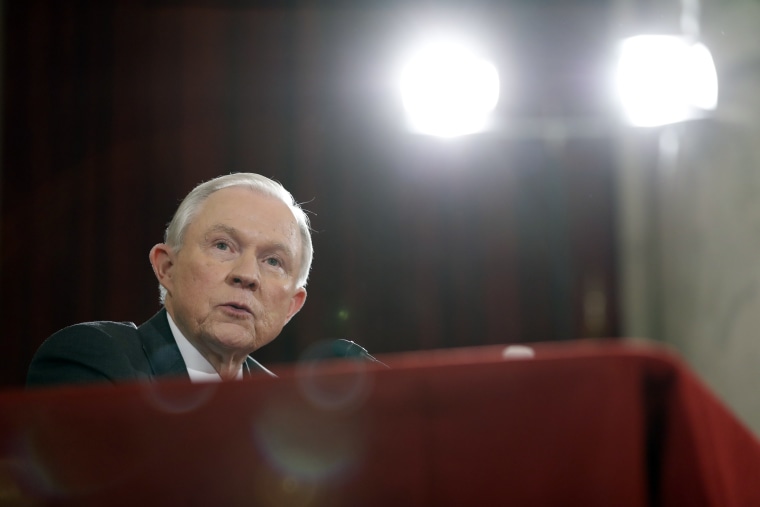Given the controversy surrounding his false testimony about communications with Russia, Attorney General Jeff Sessions should be on his very best behavior. There are credible reasons to believe the Alabama Republican may have perjured himself, and the number of federal lawmakers calling for his resignation isn't short.If anyone should be going out of their way to be as honest and forthcoming as humanly possible right now, it's Jeff Sessions.And with this in mind, it was a little surprising last night when the attorney general sat down with Fox News' Tucker Carlson, who brought up some of the basic details surrounding the Russia scandal. The host asked, "Did the [Trump] campaign believe that the Russian government, the Putin government, favored Trump over Clinton in this race?"Sessions replied, "I have never been told that." Asked if he thought Russian officials intervened to help Trump, the attorney general added, "I don't have any idea, Tucker. You'd have to ask them."This is not a sensible answer. The
Washington Post reported:
[Sessions'] assessment differs from the view of U.S. intelligence agencies, which released a report in January declaring that "Putin and the Russian government aspired to help President-elect Trump's election chances when possible by discrediting Secretary [Hillary] Clinton and publicly contrasting her unfavorably to him."The report also said Moscow did so in part because it "developed a clear preference for President-elect Trump."
Obviously. The facts have a certain tautological quality: Russia took steps to help Trump win the election because Russia wanted Trump win the election.What's striking, though, is Sessions' discomfort with acknowledging what's already been documented. It's a bit like someone close to Nixon, months into the Watergate scandal, asking on national television, "There was a break-in?"Indeed, the
Post's
report noted that the attorney general, during his confirmation hearings, seemed well aware of the allegations surrounding Russia's intervention in the American campaign.
When Sen. Lindsey O. Graham (R-S.C.) pointed out that the FBI had concluded Russia was behind the intrusion, Sessions observed, "at least that's what's been reported." Later, he allowed, "I have no reason to doubt that." Asked by Sen. Amy Klobuchar (D-Minn.) whether he had any reason to doubt the accuracy of the intelligence community's conclusion that Russia used cyber attacks "to attempt to influence this last election," Sessions said, "I have no reason to doubt that and have no evidence that would indicate otherwise."
So why is Jeff Sessions now responding to a controversy about his dishonesty by being dishonest?
